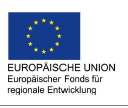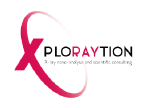Sponsored projects
We have established ourselves as an innovative player in the development and manufacture of laser systems and machines thanks to our extensive experience. Our proven expertise in laser technology and consistent focus on customer-specific solutions set us apart. Scientific research plays a central role in this context and makes a substantial contribution to our ongoing success.
Relevant research topics are summarized below:
KONQUILAS
Term: 01/10/2024 – 30/09/2026
AI-supported online quality measurement system for non-destructive integrity testing of laser-welded components
This project involves the realization of a demonstrator for an automated and non-destructive measuring system. The centerpiece is an optical microphone that captures measurement spectra up to a frequency of f ≤ 1 MHz. An integrated AI model analyzes this data to perform a reliable quality assessment of laser-welded screws. The innovative and compact design of the system allows seamless integration into industrial laser welding systems and thus online quality control of the screw connections.




Hicom – Pro
Hicom – Pro:
Process-integrative production and integration of complex-shaped hybrid multilayers with high functional density for rail vehicle construction.
MobiLAB-4D
Measuring system for 4D quality control of prostheses in the synchrotron: Effects of coatings and novel laser textures on implant surfaces.
Nanotool
Development of a positioning unit for the realization of sequentially laser-treated 2D surfaces with a homogeneity >99% and development of a 5-axis laser micromachining machine with a precision of +/- 1000 nm.
MiZ
Production of microstructured surfaces to promote the inflammation-free integration of dental implants and prevent peri-implantitis.
mobiLAB-4D Mobile measuring system for 4D quality control of implant surfaces in the synchrotron
Duration:
01.10.2019 -30.09.2022
Short project description
The demands on implant materials are becoming ever greater due to the increasing number of implantations and the higher expected age of patients. The effects of the surface structure of implants on clinical complications, such as infection or lack of osseointegration, have not been conclusively investigated. In particular, the role of nano- or microparticles that escape from the implants into the surrounding tissue is the subject of current research and development as well as regulatory innovations in connection with risk assessment.
Local exposure to metallic abrasion and corrosion products is a well-known problem in dental prosthetics. This can lead to increased local inflammation or hypersensitivity reactions. This results in inflammatory reactions in the surrounding tissue (peri-implantitis) and loss of quality of the peri-implant bone (osteolysis), whereby osteolysis can lead to early failure of the implant. Against this background, four clinically relevant questions are addressed in the project:
- Release of nanoparticles
- Toxicological risk assessment
- Insufficient osseointegration
- peri-implantitis
The overarching goal of this project is a significant reduction in possible complications after inserting an implant. This is to be achieved through the development of novel implant surfaces and their preclinical testing with regard to biocompatibility. For this purpose, a transport unit for organ-on-a-chip systems and a measuring chamber for time-resolved measurements in the synchrotron are being developed.
The project focuses on dental implants, but the results can also be transferred to other titanium-based implants (e.g. hip and knee implants). The development of novel implant surfaces in combination with meaningful, preclinical in vitro testing can serve as a model for future regulatory processes.
Project partners:
- Xploraytion GmbH
- Charité Universitätsmedizin
- Fraunhofer IPK
- Laser-Mikrotechnologie Dr. Kieburg GmbH
Associated partner:
- Universitätsmedizin Greifswald
- TissUse GmbH
- A.K.TEK Medizintechnik GmbH
Financing:
This project was co-financed by the European Regional Development Fund (ERDF).







